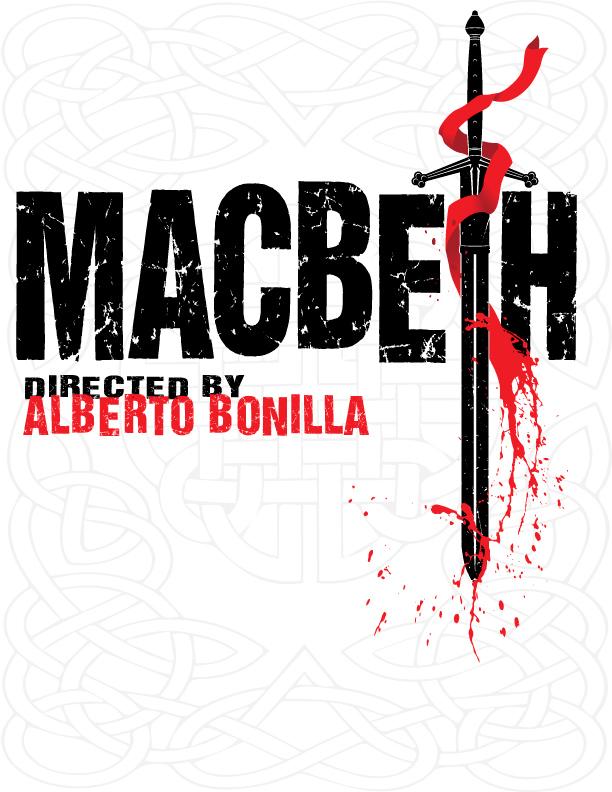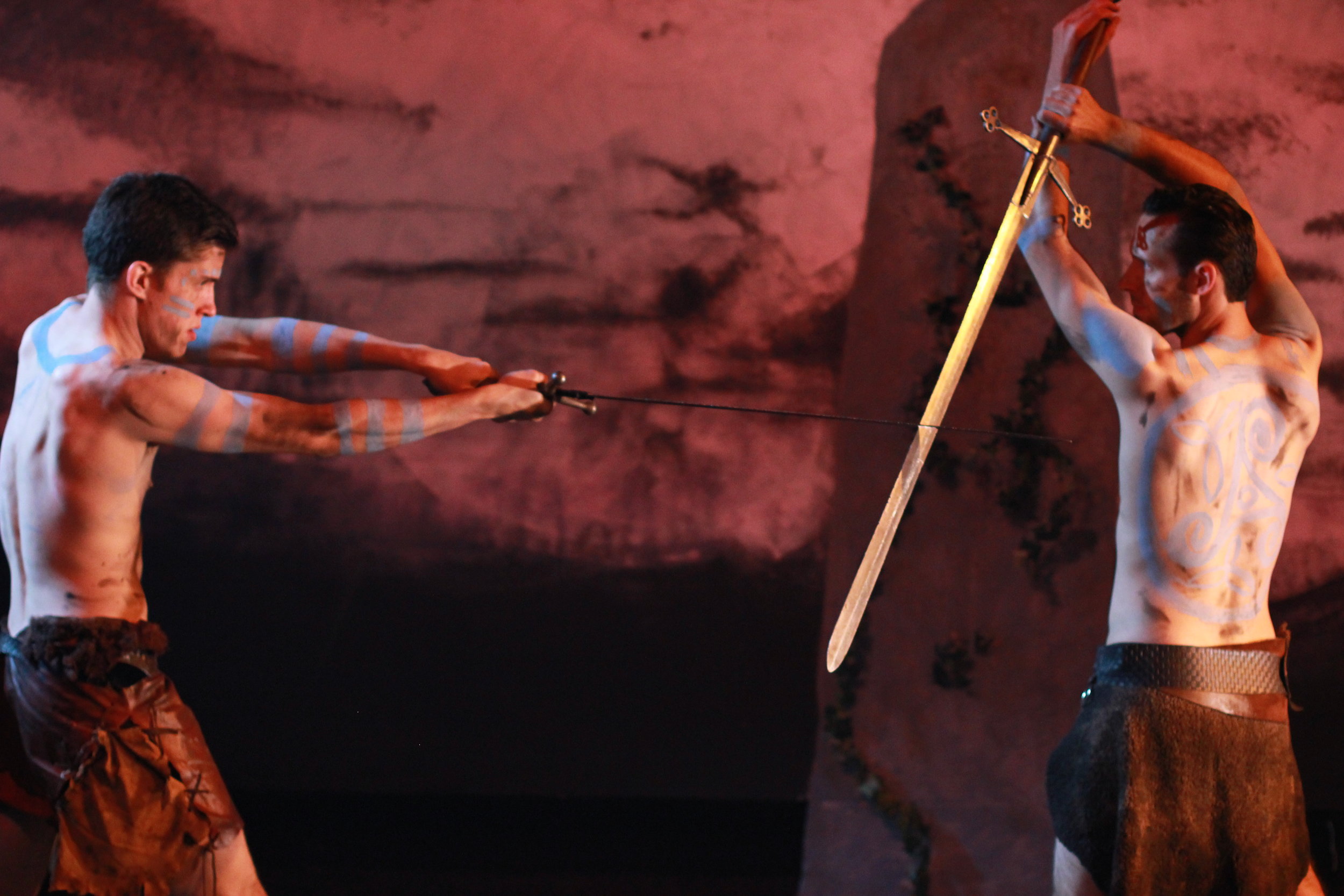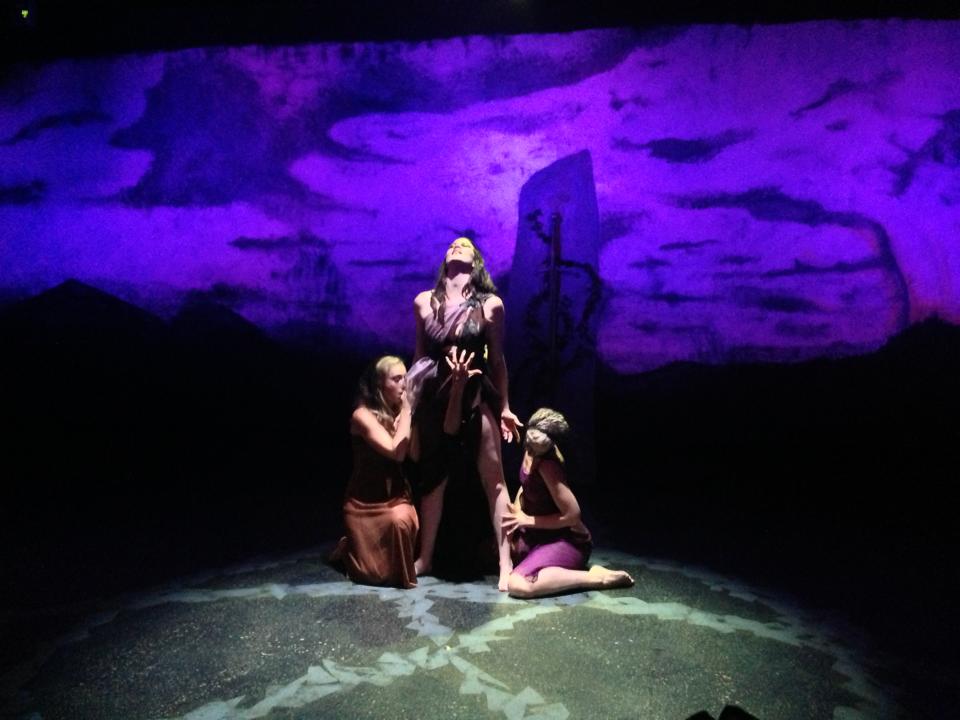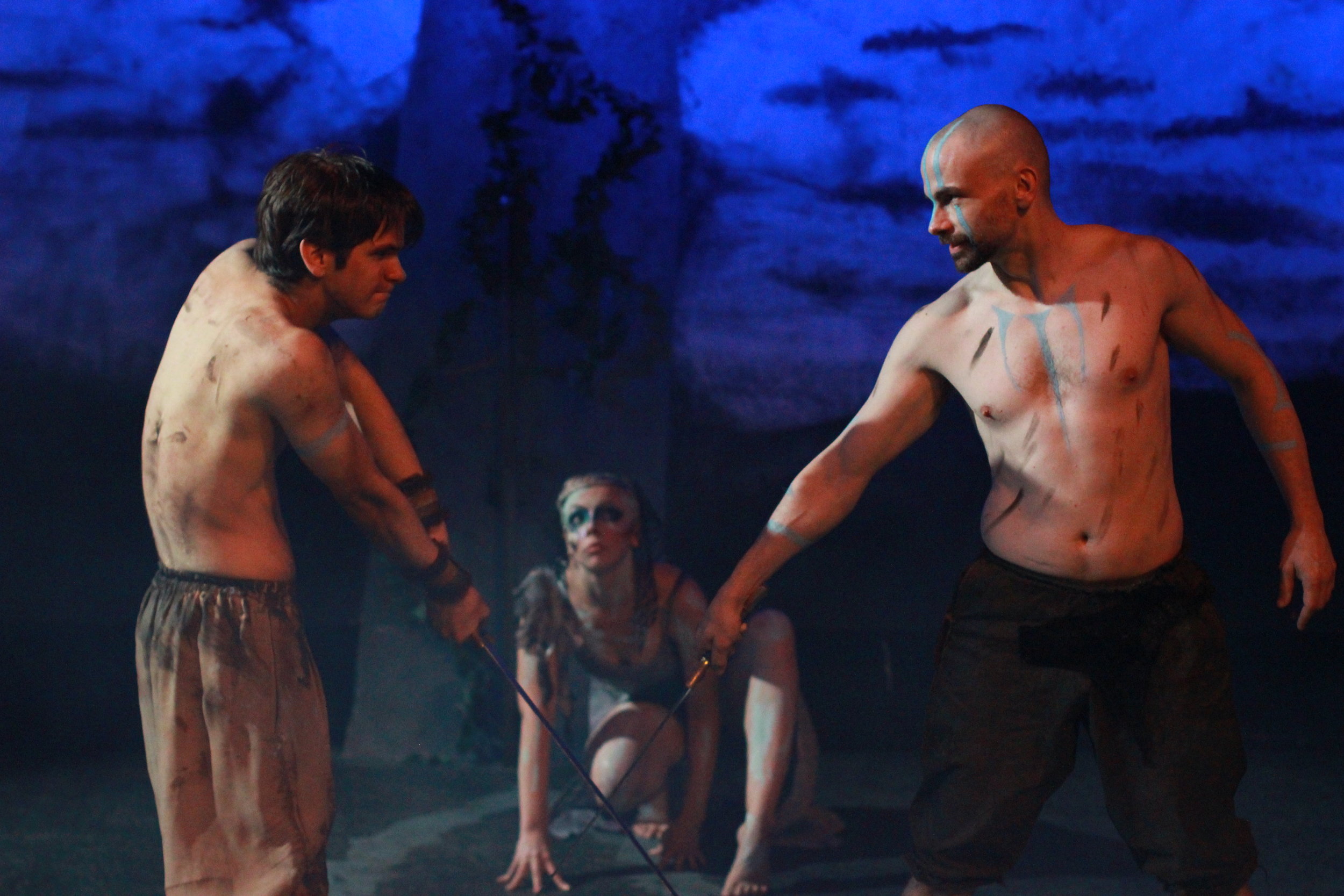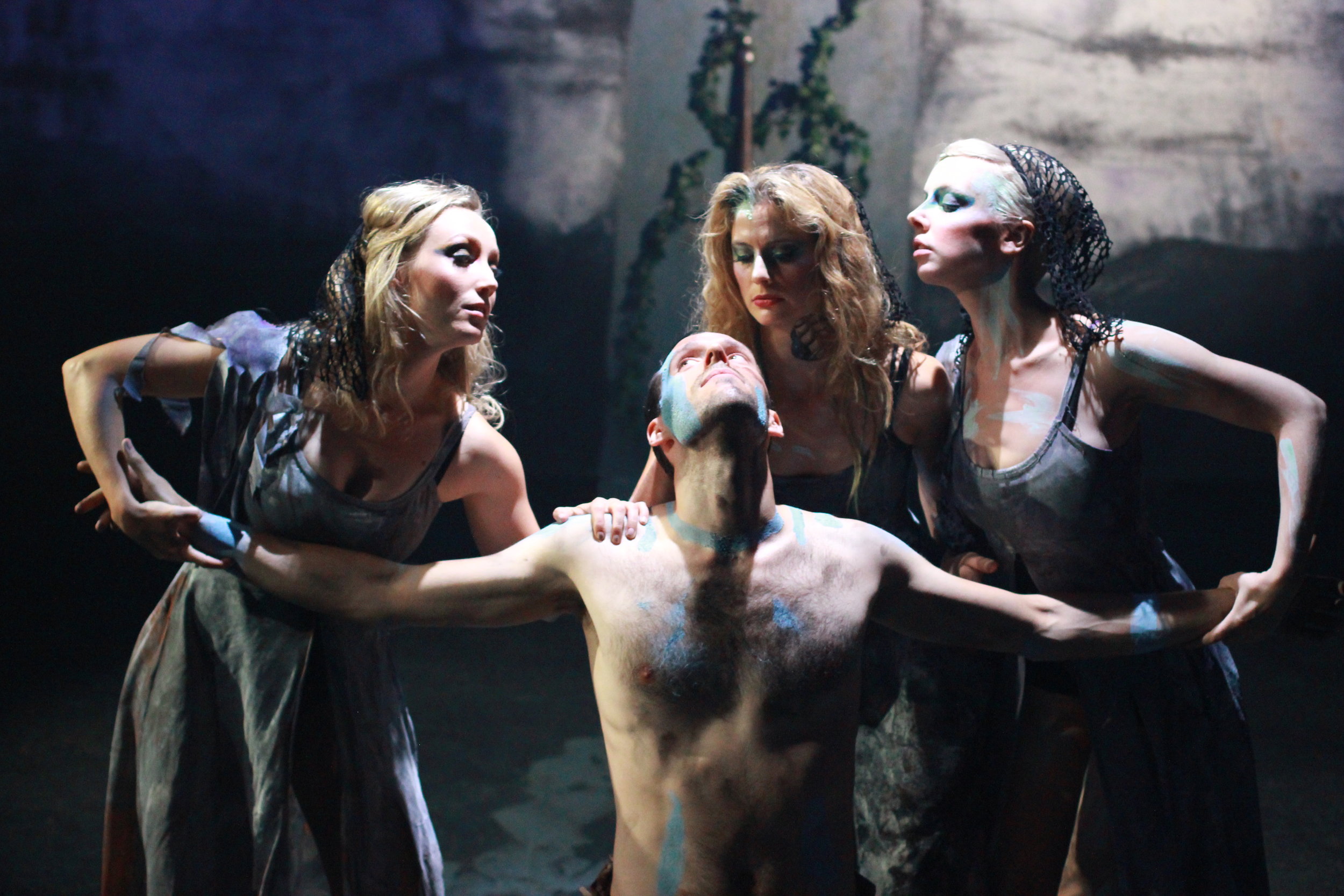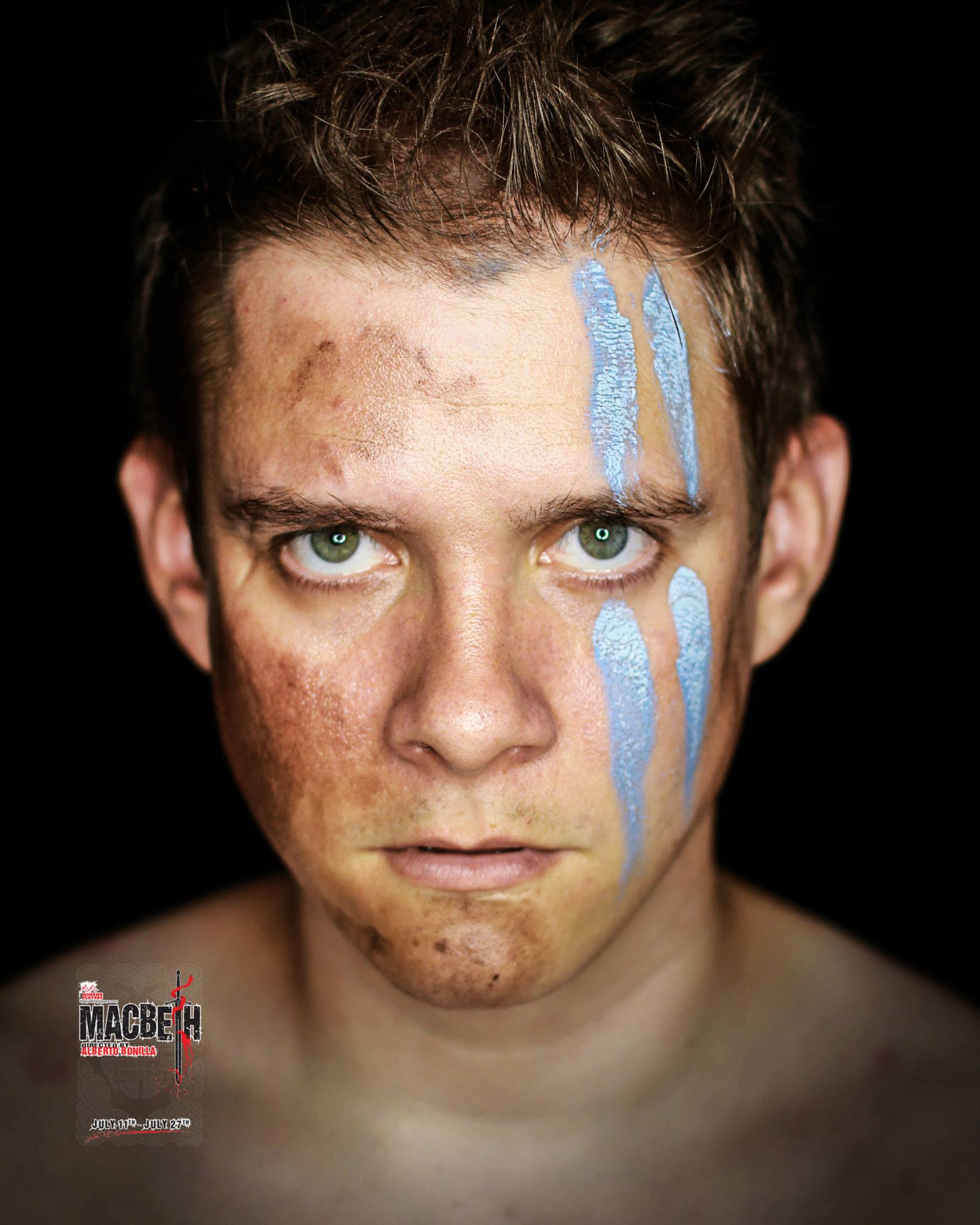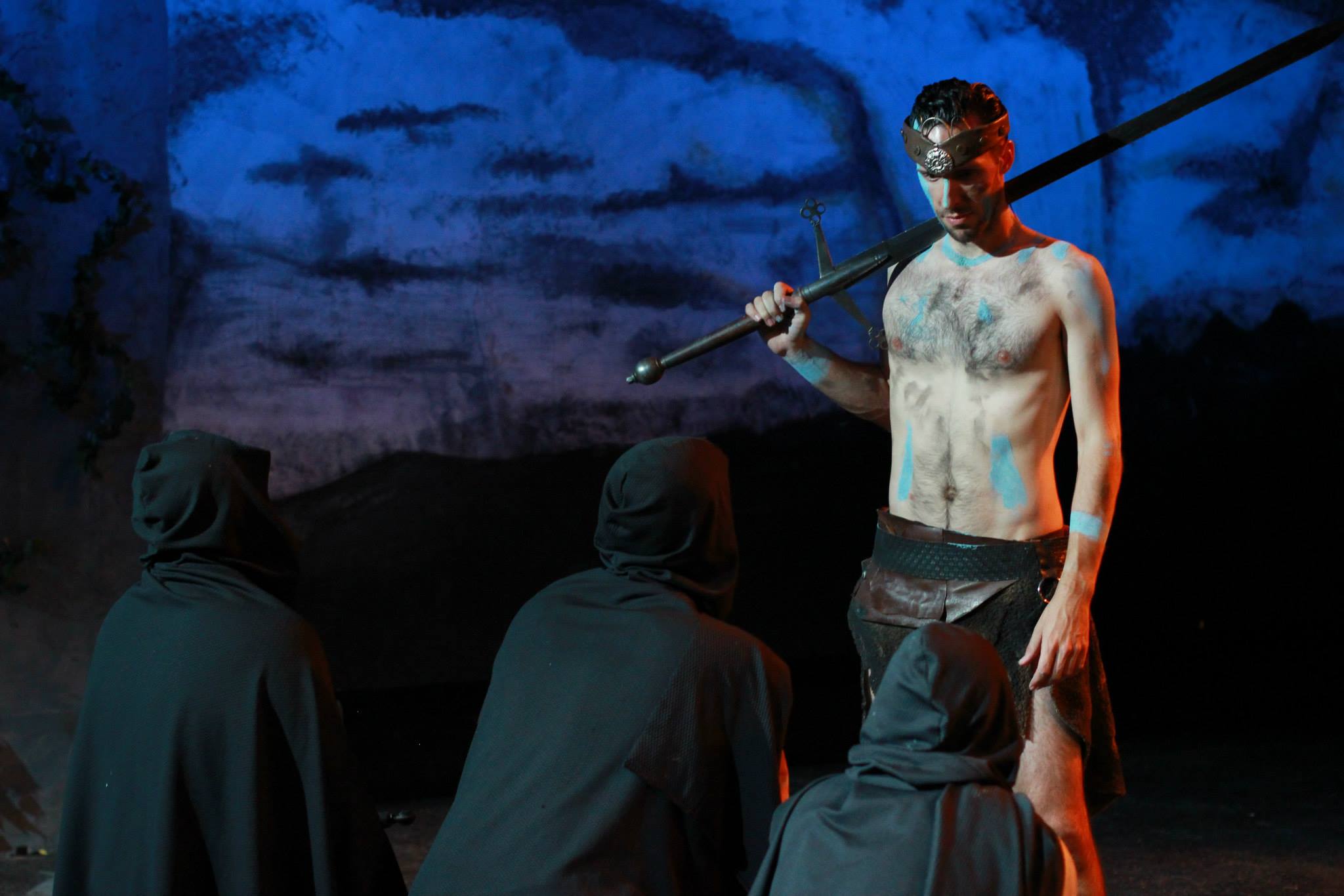MACBETH
Director's Note
Macbeth was the first Shakespeare play I ever read. I was 13 years old, skinny and a huge dork; I was the kid who was picked on and bullied in school. So I turned to martial arts as well as the escape offered by movies and books. My mind was swirling with the fantasy worlds of Tolkien, C.S. Lewis and Philip K. Dick; I couldn't get enough of Dungeons and Dragons, Highlander, Excalibur, Dune and, of course, Star Wars. Because I hadn't yet discovered theater I found my heroes in Arthur, McLeod, Han Solo, and... Tomar de Vino. Tomar was my D&D character. He was an awesome barbarian.
In the fantasy world I found heroes who against all odds, against demons and evil empires found a way to set things right. I loved the world of fantasy because I related to the questions and moral implications it raised. Fantasy gives us a sense of distance that makes it easier to discuss dark, deep subjects.
Macbeth is, for me, Shakespeare's most human villain. He starts out as a loyal, honest solider and finishes a tyrant. We relate to him because, at some point in our lives, we have made a selfish choice or given into desires that have harmed others. We all have the potential for both Hitler and Gandhi in our minds and hearts; we are defined only by what stops us from tipping one way or the other. Macbeth gives in fully... and becomes evil.
So come with me to a world where the supernatural is real, where men and women fight against fate and where good versus evil is a daily battle. I truly believe that "All evil has to do to win is for good men to do nothing..."
This play is dedicated to those who still believe that good can triumph over evil. That winter IS coming. That the sleeper has awoken. That the needs of the many outweigh the needs of the few. That one day a king will come... and the sword will rise again.
This play is dedicated to you.
"How do you fight such a savage?"
"With heart, faith and steel. In the end there can be only one..."
“Director Alberto Bonilla keeps the action moving at a brisk pace and excels at making the numerous battle scenes and murders seem real and, in the case of Lady Macduff’s demise, almost ballet-like. Bonilla is interested in exploring the evil in men’s hearts and the concept that, as he writes in the program, “we all have the potential for both Hitler and Gandhi in our minds and hearts; we are defined only by what stops us from tipping one way or the other.”
It’s the tipping, however, that makes great drama.”
“Director Alberto Bonilla also choreographed the fighting, and gave it the rough, guttural edge of a primitive age. Even the staging—shallow three quarter thrust with entrances from all sides, gives the sense that danger can come from any side. I was forcibly reminded of Mel Gibson’s Braveheart, and it put me in a place to understand the story differently than I had before. In this environment, Macbeth might not be about one man’s lust for power, but of a fractured and dangerous environment where all look for opportunities to augment or solidify their power.”
“The bewitching choreography lends way to the cacophonous chaos of war, choreographed with precision by Bonilla, who is a martial arts and weapons expert, and a seasoned fight choreographer as well.”

